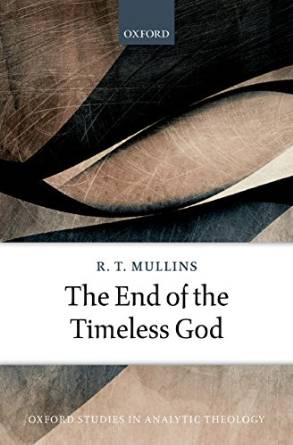Podcast: Play in new window | Download
Subscribe: Spotify | Email | RSS
 What is “classical” theism, and why is it controversial? In this episode Dr. Mullins and I discuss further themes from his book The End of the Timeless God. Is God outside of time (timeless, timelessly eternal)? Is God immutable (absolutely unchangeable)? Impassible (incapable of “passions”)? Simple (without any parts or meta physical components)?
What is “classical” theism, and why is it controversial? In this episode Dr. Mullins and I discuss further themes from his book The End of the Timeless God. Is God outside of time (timeless, timelessly eternal)? Is God immutable (absolutely unchangeable)? Impassible (incapable of “passions”)? Simple (without any parts or meta physical components)?
Such divine attributes are widely agreed on in historical Christian theologies. Interestingly, Dr. Mullins holds that a Christian should deny that God is timeless, immutable, impassible, or simple. In his view, these alleged divine attributes lack biblical support, and contradict biblical teachings about God.
Last week we focused on timelessness. This week, the final three: immutability, impassibility, and simplicity.
Does Dr. Mullins make a strong case against these? Why or why not?
Links for this episode:
- Dr. R.T. Mullins’s papers at Academia.edu
- classical theism
- The Classical Theism Project
- Donald Viney, “Process Theism”
- James Rissler, “Open Theism“
- John Culp, “Panentheism“
- John Laing, “Middle Knowledge” [“Molinism”]
- Timothy Pawl “Divine Immutability“
- Chris Mortensen, “Change and Inconsistency“
- William Vallicella, “Divine Simplicity“
- Shankara / Samkara
- Stephen Charnock Project
- Texts discussed in this episode: Revelation 1:4, Ezekiel 10; Exodus 2:23-25; Hosea 1; Luke 15:11-32.
- New Coke
- This week’s thinking music is “Untitled“ by Jesse Spillane, from his album “Descent of the Goober Monster.”


Great podcast, one divine attribute that could have been discussed is that of Gods incorporeality. Mormons believe God literally has a body ( that isn’t so far-fetched an idea -Jesus certainly had a body and is 1/3 the Godhead- right?) I have usually heard incorporeality defended by way of omnipresence, that God could not have a body if he is to be everywhere. However, if omnipresence is simply reduced to omniscience- then a embodied god is not entirely ruled out as a possibility- very interesting.
Comments are closed.